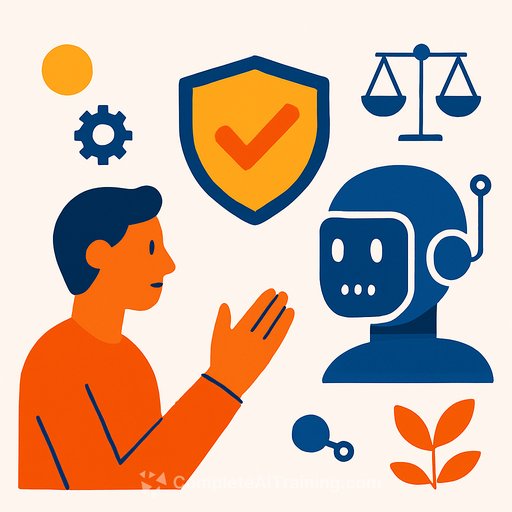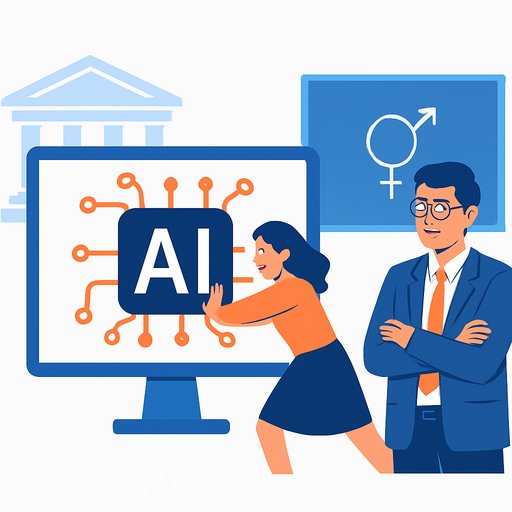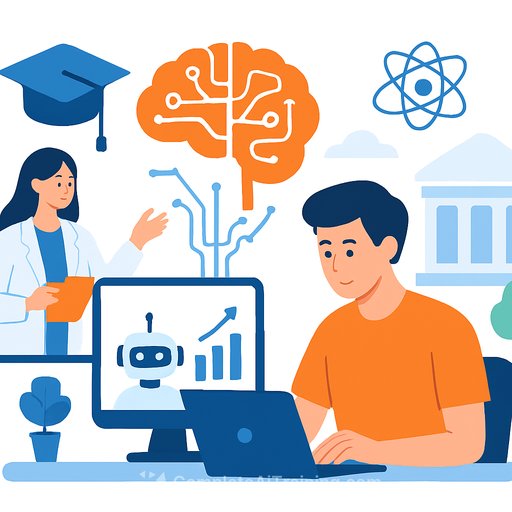Community Guidelines for Using AI at UM
September 15, 2025
AI now touches most parts of teaching, research, and campus operations. As a research-intensive university, UM encourages exploration that is responsible, transparent, and human-led. The benefits are clear-better teaching support, improved accessibility, stronger research capacity, and smarter processes-alongside real risks like security, academic integrity, misinformation, resource use, and bias.
In 2024, UM formed a Committee on Artificial Intelligence to study opportunities and risks, and to set principles that fit our context. Below is a practical summary for educators, researchers, and staff.
What AI Means at UM
AI refers to using computers and machines to simulate human learning, problem-solving, creativity, and more. A key focus in higher education is generative AI, which can produce text, code, images, and video that feels original.
Guiding Principles
- Intellectual Integrity: Uphold UM's academic standards in all AI use. Be honest about when and how AI is used, and take responsibility for accuracy and attribution.
- Human-Centred Approach: Keep relationships, mentorship, and judgment at the core. Use AI to extend human capability, promote collaboration, and keep decisions explainable.
- Responsible Behaviour: Maintain human oversight. Prioritize ethical use, transparency, and safeguards to prevent misuse.
- AI Literacy and Training: Build skills across the community so people can make informed choices about AI in courses, careers, and daily work.
- Privacy and Data Security: Protect UM data and personal information. Apply risk assessments and controls before adopting tools or sharing content with them.
- Intellectual Property and Copyright: Respect rights and licenses. Use copyrighted material in line with the Copyright Act or with permission, and stay current as standards evolve. See the Government of Canada's Copyright Act for reference: Copyright Act (Justice Laws).
- Environment and Sustainability: Prefer AI services that are energy-efficient and follow strong sustainability practices.
- Accessibility and Fairness: Ensure required tools are accessible and do not disadvantage students due to disability or socio-economic factors. Monitor for bias and discrimination.
- Risk and Mitigation: Reduce exposure to data leaks, copyright issues, reputational harm, and unreliable outputs. Use governance, reviews, and testing to lower risk. For a useful framework, see the NIST AI Risk Management Framework.
Practical Steps for Educators and Staff
- Set course and lab norms: State what AI use is allowed, what is not, and how to cite or disclose AI assistance. Add this to syllabi and assignment briefs.
- Require disclosure: Ask students and staff to note which tools were used, for what purpose, and what prompts or settings mattered.
- Protect data: Do not paste sensitive or identifiable information into public tools. Use institution-approved platforms and review their data policies.
- Verify outputs: Fact-check, test code, and review references. Treat AI outputs as drafts that require expert review.
- Reduce bias: Probe outputs for stereotypes or gaps. Use diverse prompts and cross-check with trusted sources.
- Design fair assessments: Mix authentic tasks, oral checks, and process logs to assess learning while allowing permitted AI use.
- Support accessibility: Offer alternatives if an AI tool poses access barriers, and provide clear guidance for assistive use cases.
- Track resource use: Prefer lower-compute options when possible and consolidate tools to reduce waste.
- Upskill regularly: Join training sessions, share practices with peers, and keep a living checklist of approved tools and workflows.
Governance and Next Steps
UM's Committee on Artificial Intelligence reviewed global practices and set principles for our campus. Over the coming months, UM will launch an online hub with practical tips, resources, and training opportunities. Watch UM Today for updates.
If you're building skills for your role, you can also explore curated learning paths by job function here: AI courses by job.
Your membership also unlocks:






